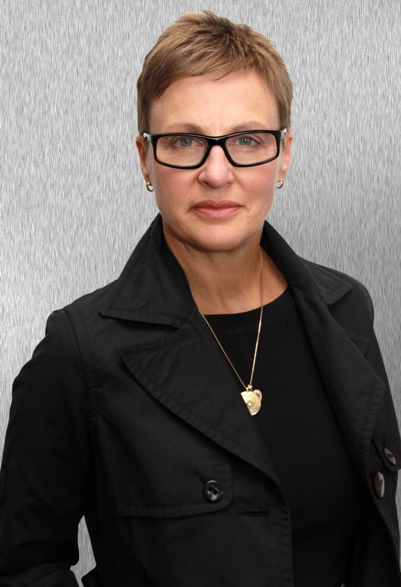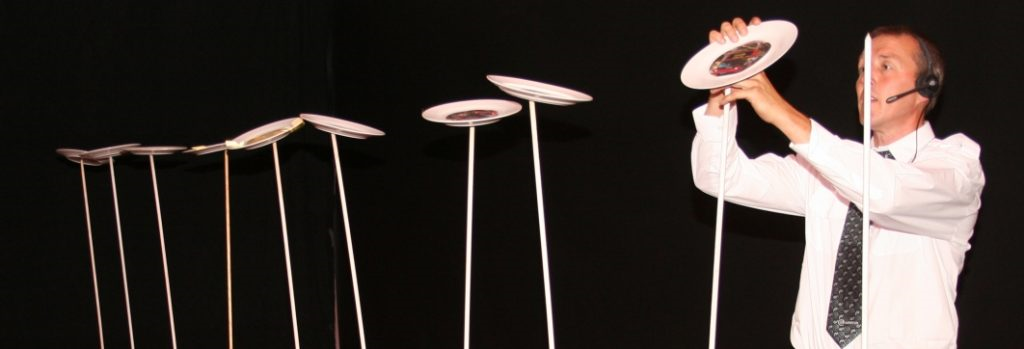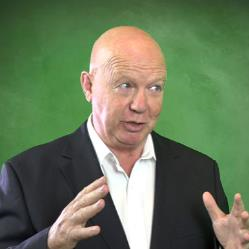 "Sales is not an island; yet support from peers can be difficult to obtain" - Interview by John Smibert
"Sales is not an island; yet support from peers can be difficult to obtain" - Interview by John Smibert
Many sales leaders do not get the support they need from their peers.
Sales can be very foreign to other disciplines such as finance, operations, production and even marketing. Often leaders from these other areas of the business cannot relate to the challenges, issues and mode of operation in sales. This leads to lack of support and collaboration which leaves the sales leader struggling to get what they need to build and lead a successful sales organisation. The result is that the whole business suffers.
How therefore can the sales leader obtain more support from his or her peers?
I ask sales leadership guru Sue Barrett to explain what she sees as the problem and what the solution is.
Sue explained that; "Sales leaders have to acknowledge and communicate and share with anyone who'll listen is that selling is a world of approximation, it doesn't follow a linear pathway, it is a system that has many variables. I liken leading and running a sales team in a sales operation like being a plate spinner at the fare".
"So, the challenge is how do we actually get that lot to actually appreciate the world that we operate in".
Sue went on to recommend some great ways for sales leaders to to develop the peer support they need.
See the full interview below to learn more.
***********
Sue is an authoritative thought leader and an accomplished author on the selling profession. She's also founder and CEO of Barrett and SalesEssentials.com.
Interview
John: Hello, I've got Sue Barrett with me again - welcome back, Sue!
Sue: Thank you, John!
John: Hey Sue, I'd like to address a subject that I'm very interested in, and that is how do we support the sales director, the sales manager, the sales leader in an organisation and his team? Because so often they're the meat in the sandwich. Is that right?
Sue: Yes.
John: To me, sales is both a science and an art, it's not exacting, and that's why it's tough getting forecasts right, it's tough in a whole lot of areas. And for that sales director to get support from the rest of the organisation at the executive level can be really tough, can't it?
Sue: Yes.
John: Have you got any recommendations on how we can address that situation, how a sales director can get that buy-in and support from his or her peers?
Sue: Well, the first thing we have to acknowledge and communicate and share with anyone who'll listen is that, as you said, selling is a world of approximation, it doesn't follow a linear pathway, it is a system that has many variables. I liken leading and running a sales team in a sales operation like being a plate spinner. You know, at the fare?
 John: [laughs] Yes.
John: [laughs] Yes.
Sue: Where they put one plate up and they spin it around, and then they get the next one up and the next one up and then they get to the end, and by the time... then it starts wobbling, and which one should I let drop and which one should I keep? That's what running a sales operation is like.
John: It is, isn't it? It's a classic example.
Sue: And so what you have is you have people from say leadership, from non-sales environments who have a more predictable life.
John: Yes. "I'm an accountant," and you can plan what you're doing in accounting, you know what the numbers are; they're exact, it's either on or off.
Sue: Yes, and you've got Lean Six Sigma, you've got all that kind of stuff in production and...
John: A business process.
Sue: A business process.
John: A sales process versus other business processes.
 Sue: So, the challenge is how do we get that lot to actually appreciate the world that we operate in. Well, we have to make sure that we steer away from point solutions, which we've talked about in the past, where people think fixing a sales team is just one thing, stick a CRM in, or something like that. We have to say, "No, that's not going to work." What we have to do is actually explain the various components of a sales system, and then actually allow these non-sales executives to participate in the development of that.
Sue: So, the challenge is how do we get that lot to actually appreciate the world that we operate in. Well, we have to make sure that we steer away from point solutions, which we've talked about in the past, where people think fixing a sales team is just one thing, stick a CRM in, or something like that. We have to say, "No, that's not going to work." What we have to do is actually explain the various components of a sales system, and then actually allow these non-sales executives to participate in the development of that.
We've been, for example, running very successfully... We do a sales strategy and operations audit which actually maps a whole lot of areas, including market segmentation, sales messaging, sales force structure, sales processes, sales technology, sales leadership development, metrics, strategy so on, and so it maps all of those things. And we deliberately ask the sales leaders to invite the non-sales exec a) to complete the audit, and then b) part of actually developing a sales strategy, and every single time we've had a non-sales exec come in, all of a sudden they've gone, "Oh my God - I now understand why my demands and requests for accurate pipelines and forecasts are never going to happen!"
So, if we can make sure that people understand that there's this plate-spinning scenario happening and have an appreciation for that, and then work and support, "Which bits can I provide you with good data and information, sales manager, sales leader? How can I help you make better, accurate reports?" If we work that way, rather than pointing fingers at the sales leadership team and the sales team, going, "Them, them, them - they're not producing," and work with them, with these moving plates, spinning plates, then I think you'll find that there is a lot more teamwork, a lot more appreciation, buy-in and support of us going out into a variable system, trying to deliver results.
John: And probably a lot more support; the earlier subject we had of everybody in the organisation has a role to play in sales.
Sue: Yes, the science and the art. You've got culture, you've got people's mindset and skills, but you've also then got strategy and operational management, and organising that in a way that actually makes sense. We can't take the complexity out of running a sales operation, but we can help people think and manage it a whole lot better, and then respect that it will always be like this, it's not going to be linear.
John: I think that makes a lot of sense. It's really, really tough in that sales leadership role, particularly if you don't get that support across your peers and you are the meat in the sandwich. I'd rather be everybody else in the sandwich working together, rather than me being the meat in the sandwich, and that's what you're talking about.
Sue: Yes, correct.
John: Thank you very much, Sue - great advice!
Sue: My pleasure - thank you!
****************
Past interviews with Sue Barrett:
***************

Your Invitation: I invite you to join the Sales Leader Forum group on LinkedIn where you can experience informative discussions with your peers and sales thought leaders on subjects like the one we have discussed here. I also invite you to subscribe to the
- Sales Leader Resource Centre here
- Sales Leader YouTube channel here (300+ sales leadership videos)
Please Share: If you valued this article, please share via your Twitter, LinkedIn, Google+ and Facebook social media platforms. I encourage you to join the conversation or ask questions. So feel free to add a comment on this post - I promise to respond. If inclined please follow my LinkedIn post page here.
Want to touch base? If you have questions please feel free to contact me - email: john.smibert(at)salesleaderforums.com, Phone: +61 404857893 or Skype: john.smibert